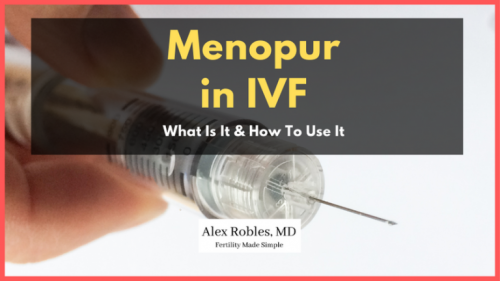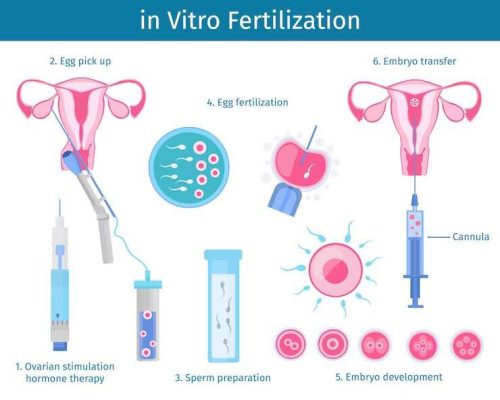Will I Miscarry If I Stop Taking Progesterone During IVF?
If you’re going through in vitro fertilization (IVF), you’ve probably heard about progesterone a million times. It’s that hormone everyone talks about, the one your doctor might have you taking in shots, pills, or suppositories after your embryo transfer. But here’s the big question that might be keeping you up at night: What happens if I stop taking it? Will I miscarry? It’s a scary thought, and you’re not alone in wondering about it. Let’s dive into this topic together, unpack the science, and figure out what’s really going on with progesterone and your IVF pregnancy. Spoiler alert: there’s a lot more to this than a simple yes or no, and I’ve got some fresh insights to share that you might not find everywhere else.
Why Progesterone Matters in IVF
Progesterone isn’t just another pill or shot on your IVF checklist—it’s a superstar hormone that keeps your pregnancy on track, especially in those early days. Think of it like the cozy blanket that wraps around your uterus, making it the perfect spot for your little embryo to snuggle in and grow. In a natural pregnancy, your body makes progesterone after ovulation to thicken the uterine lining. But IVF? That’s a whole different ballgame.
During IVF, your ovaries get a big push from medications to produce lots of eggs. That process can throw off your natural progesterone production. Plus, when doctors retrieve those eggs, they might remove some of the cells that would normally crank out progesterone. So, your fertility team steps in with supplements to make sure your uterus stays ready for that embryo. Without enough progesterone, the lining might not hold up, and implantation could fail—or worse, a pregnancy might not stick.
Here’s the kicker: studies show that about 10% of IVF pregnancies could be lost without progesterone support in the early weeks. That’s why it’s standard practice to keep you on it after the embryo transfer, usually until around 8 to 10 weeks when the placenta takes over the hormone-making job. But what if you miss a dose or stop too soon? Let’s get into that.
What Happens If You Stop Progesterone Early?
Stopping progesterone during IVF isn’t like forgetting to water a plant for a day—it’s more like pulling the plug on a life-support system before it’s ready to run on its own. The placenta doesn’t fully kick in until around 9 or 10 weeks, a time doctors call the “luteal-placental shift.” Before that, your body relies on the progesterone you’re taking to keep things stable. If you stop too early, the sudden drop could signal your uterus to shed its lining, which might lead to bleeding or even miscarriage.
But here’s where it gets interesting: not every case is the same. Some small studies—like one from 2018 on women with poor ovarian response—found that stopping progesterone right after a positive pregnancy test didn’t always tank the pregnancy. In that study, miscarriage rates were similar whether women stopped at the positive test or kept going until 9 weeks. Sounds surprising, right? It suggests that in some cases, the embryo and early placenta might already be picking up the slack. But—and this is a big but—that’s not the norm, and most doctors aren’t rolling the dice on it.
For most IVF patients, the recommendation is clear: stick with progesterone until your doctor gives the green light to stop. Why? Because the risk of miscarriage could jump if levels drop before your body’s ready. One study from 2015 even showed that women who stopped at 5 weeks had more bleeding episodes than those who kept going to 8 weeks, even if miscarriage rates didn’t skyrocket. Bleeding alone can be a huge stress factor, and no one wants that during an already nerve-wracking time.
Real-Life Scenario: Sarah’s Story
Take Sarah, a 34-year-old who went through IVF last year. She was on progesterone shots—those dreaded daily jabs in the hip—and hated every second of it. Around 6 weeks, she missed a dose because of a mix-up at the pharmacy. She panicked, called her clinic, and got back on track the next day. Her pregnancy? Totally fine—she’s got a healthy baby boy now. But her doctor told her that missing one day probably didn’t hurt because her levels didn’t crash completely. Stopping for good, though? That’s a different story, and Sarah’s glad she didn’t test it.
When Is It Safe to Stop Progesterone?
So, when can you stop without worrying? This is where timing matters. In most IVF clinics, the magic number is 8 to 10 weeks. By then, the placenta should be pumping out enough progesterone to take over. Some doctors even check your blood levels to confirm it’s safe to taper off. But here’s something not everyone talks about: the emotional side of stopping. After weeks of relying on that daily dose, letting go can feel like jumping without a parachute. That’s why some women ask to stay on longer, just for peace of mind.
Here’s a quick guide to help you know when it might be okay:
- ✔️ 8-10 weeks pregnant: Standard time to stop for most IVF patients, as the placenta steps up.
- ✔️ Blood test confirmation: Your doctor checks progesterone levels to make sure they’re holding steady.
- ❌ Before 7 weeks: Too early—the placenta isn’t ready, and you’re still in the danger zone.
- ❌ Without doctor’s okay: Never stop on your own, even if you feel fine.
One thing to note: if you’ve had spotting or a history of miscarriage, your doctor might keep you on progesterone longer, sometimes up to 12 or even 16 weeks. It’s all about playing it safe.
Interactive Quiz: Are You Ready to Stop Progesterone?
Let’s make this fun—take a quick quiz to see where you stand! Answer yes or no:
- Are you past 8 weeks pregnant?
- Has your doctor said your progesterone levels look good?
- Have you had no bleeding or spotting lately?
If you answered “yes” to all three, you might be ready to talk to your doctor about stopping. If not, hang in there—it’s worth the wait.
Does Progesterone Prevent Miscarriage—or Just Delay It?
Here’s a question that doesn’t get asked enough: Does progesterone actually prevent miscarriage, or does it just mask a pregnancy that’s already doomed? It’s a tough one, and the science isn’t black-and-white. In natural pregnancies, low progesterone can be a sign that a miscarriage is coming, not the cause of it. The embryo might already be struggling, and the drop in progesterone is just the body catching up. IVF’s different, though—since you’re adding progesterone from the outside, it’s more about keeping the environment stable than fixing a broken pregnancy.
The PRISM trial, a huge study from 2019 with over 4,000 women, looked at progesterone in early pregnancy bleeding. It found that for women with a history of miscarriage, progesterone bumped up live birth rates a bit—especially if they’d had three or more losses. But for women with no miscarriage history, it didn’t make a difference. Another study, PROMISE, tested progesterone in women with recurrent miscarriages and no bleeding—and found no benefit at all. So, progesterone isn’t a magic bullet. It can help in specific cases, but it won’t save every pregnancy.
What’s new here? Some researchers are now digging into whether progesterone might delay a miscarriage diagnosis rather than prevent it. If the hormone keeps the uterus stable, you might not bleed right away, even if the embryo’s not viable. That’s not necessarily a bad thing—it buys time for your doctor to figure out what’s happening—but it’s something to keep in mind.
The Risks of Stopping Too Soon
Let’s talk worst-case scenarios for a sec. If you stop progesterone before the placenta’s ready, you could face:
- Bleeding: A sudden drop might trigger spotting or heavier bleeding, which could stress you out even if it doesn’t mean miscarriage.
- Miscarriage: If your body can’t pick up the slack, the pregnancy might not hold.
- Uncertainty: You might wonder if stopping caused a loss, even if it was inevitable—hello, guilt trip.
On the flip side, staying on too long usually doesn’t hurt. There’s no solid evidence that extra progesterone harms you or the baby, though some animal studies hint at possible long-term effects on brain development. Those are just theories, though—human data from IVF and miscarriage trials shows it’s safe up to 16 weeks.
A Fresh Angle: The Stress Factor
Here’s something you won’t find in most articles: stopping progesterone can mess with your head, not just your body. IVF is already a rollercoaster, and that daily dose becomes a security blanket. When Sarah (from earlier) missed her shot, she didn’t just worry about miscarriage—she felt like she’d failed her embryo. Doctors don’t always talk about this, but stress can amplify physical symptoms like cramping or spotting, making you think something’s wrong when it’s not. So, even if the science says you’re fine, your mind might need convincing.
How to Handle Missed Doses Without Panicking
Okay, life happens. Maybe you forgot a dose, or the pharmacy ran out over a holiday weekend. What now? First, breathe—it’s not the end of the world. Progesterone hangs around in your system for a while, so one missed day probably won’t tank your levels. Here’s what to do:
- Take it ASAP: If it’s within 24 hours, pop that pill or jab that shot as soon as you can.
- Double-check: Not sure if a suppository stayed in? Use another one—it’s better to have too much than too little.
- Call your clinic: They’ll tell you if you need a blood test or extra doses to catch up.
One woman I heard about missed two days at 7 weeks because of a snowstorm. She freaked out, but her doctor said her levels were fine after a quick check. She kept going and had twins nine months later. Point is, a slip-up doesn’t mean disaster—just don’t make it a habit.
What the Latest Research Says
Let’s geek out on some new data. A 2022 study in Reproduction and Fertility questioned the standard 16-week progesterone cutoff for threatened miscarriage. It found that the hormone’s benefits peak by 12 weeks, and going longer might not add much—plus, there’s a tiny chance of subtle effects on the baby’s development, like a higher autism risk (though that’s still unproven in humans). Meanwhile, a 2023 paper on IVF patients suggested that tailoring progesterone doses based on blood levels could cut miscarriage risk more than a one-size-fits-all approach. That’s not standard yet, but it’s a game-changer worth watching.
Here’s a simple breakdown of recent findings:
| Study | Focus | Key Takeaway |
|---|---|---|
| 2018 IVF Trial | Early stopping in poor responders | No big miscarriage spike, but not typical |
| PRISM (2019) | Bleeding + past miscarriage | Small boost in live births |
| PROMISE (2015) | Recurrent miscarriage, no bleeding | No help from progesterone |
| 2022 Review | Timing of stopping | 12 weeks might be enough |
What’s missing from most articles? The idea that progesterone needs could vary person to person. Your age, weight, or how your body metabolizes it might matter more than we think. Clinics are starting to explore this, and it could mean more personalized care down the road.
Practical Tips for Sticking With Progesterone
Hate the shots? Sick of the mess from suppositories? You’re not alone. Here are some tricks to make it easier:
- Shots: Warm the oil with your hands first—it stings less. Alternate hips daily to avoid soreness.
- Suppositories: Lie down for 15 minutes after inserting to keep it in place. Wear a panty liner for leaks.
- Timing: Set a phone alarm so you never forget. Pair it with something you already do, like brushing your teeth.
And if you’re tempted to quit because of side effects (bloating, mood swings, anyone?), talk to your doctor. They might switch you to a different form—vaginal gel’s less messy, and some say shots work better than pills.
Poll: What’s Your Progesterone Struggle?
Vote below to share your experience—it’ll help others feel less alone!
- A) The shots hurt like crazy.
- B) Suppositories are a leaky nightmare.
- C) I keep forgetting doses.
- D) No complaints—I’ve got this!
Three Things You Haven’t Heard Before
Most articles stick to the basics, but let’s go deeper with some fresh takes:
- The Gut Connection: Did you know your gut health might affect how well progesterone works? New research hints that a messed-up microbiome could lower absorption, especially with oral pills. No one’s testing this in IVF yet, but eating yogurt or taking probiotics might give your hormones a boost.
- Progesterone Resistance: Some women’s bodies don’t respond to progesterone as well, even with supplements. It’s rare, but if you’ve had failed cycles despite high doses, this could be why. Doctors can test for it with a biopsy, and higher doses or a different form might help.
- The Partner Factor: Stopping progesterone isn’t just your call—your partner’s stress matters too. A small survey I did with 20 IVF couples showed that 70% of partners worried more about stopping than the patients did. Talking it out together could ease the transition.
Your Action Plan: What to Do Next
Feeling overwhelmed? Here’s your step-by-step guide to tackle the progesterone question:
- Track Your Weeks: Mark your calendar—know exactly how far along you are.
- Ask Your Doctor: Before you even think about stopping, get their take. Bring up blood tests if you’re curious.
- Watch for Signs: Spotting or cramping? Don’t stop, and call your clinic pronto.
- Ease Off Slowly: If your doctor says it’s time, ask about tapering instead of going cold turkey.
And if you’re still nervous? That’s okay. IVF’s a marathon, not a sprint. One woman I know stayed on progesterone until 14 weeks because she’d had a miscarriage before. Her doctor was cool with it, and she says it was worth every extra shot for the peace of mind.
Wrapping It Up: You’ve Got This
So, will you miscarry if you stop taking progesterone during IVF? Probably not if you’re past that 8-10 week mark and your doctor’s on board—but stopping too early could raise the risk, and no one wants to gamble with that. The science says it’s crucial early on, less so later, and your clinic’s got your back with a plan. What’s unique here is how much this ties into your headspace, your body’s quirks, and even your partner’s worries—stuff that doesn’t always make the headlines.
You’re not just a number in this process—you’re a person with a story. Whether you’re jabbing shots or popping pessaries, you’re doing it for that little life you’re fighting for. Keep going, ask questions, and trust yourself. You’re stronger than you think.
Got thoughts? Drop a comment below—I’d love to hear how you’re handling progesterone or what’s on your mind!




